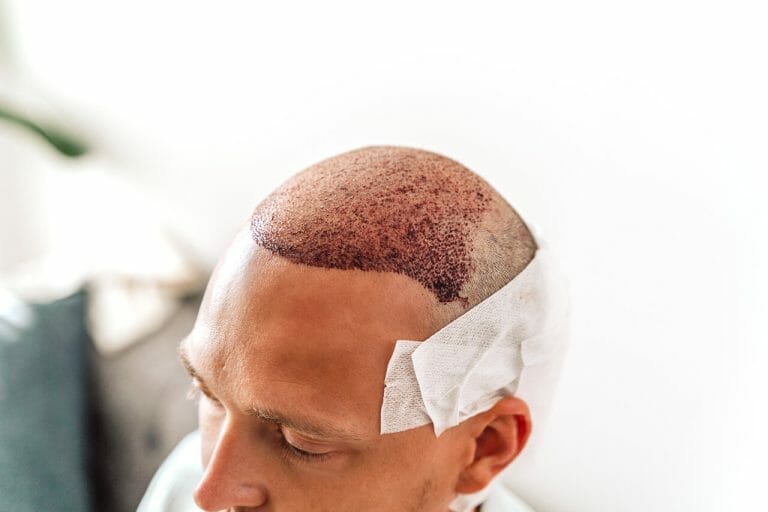Hair loss can be a distressing experience for both men and women. It can affect your confidence and self-esteem. If you’re considering a hair transplant, one of the first questions that come to mind is the cost. How much does a hair transplant cost in Montreal, Canada? Hair transplant surgery is a popular procedure that involves taking healthy hair from one part of your scalp and transplanting it to the balding areas.
While the cost of a hair transplant may vary depending on several factors, including the number of grafts needed, the surgeon‘s experience, and the location, it’s essential to understand the cost implications before making any decisions. If you’re looking for information on the cost of a hair transplant in Montreal, you’ve come to the right place. In this article, we explore the cost factors, average prices, and other essential details you need to know before scheduling your hair transplant surgery.
What Is Hair Transplant Surgery?
Hair transplant surgery is a form of hair restoration used to treat pattern baldness. It involves using donor hair, typically taken from the sides and back of the head, in order to restore thinning or bald areas on top of the scalp. The most common type of procedure is follicular unit extraction (FUE), which removes individual hairs from the donor area and places them into tiny incisions made in the recipient site. This method can be performed with either manual or robotic assistance and usually requires multiple sessions for optimal results.
What are the benefits of hair transplants?
Types Of Hair Transplantation
Below are the different types of hair transplant techniques that are commonly used:
- Follicular unit transplantation (FUT) is a traditional hair transplant procedure that involves removing a strip of hair follicles from the donor area and transplanting them into the recipient area. The strip of hair follicles is then divided into individual follicular units, which are then implanted into the balding areas. While FUT is an effective technique, it can leave a linear scar at the donor site, which may require additional treatments to conceal.
- Follicular unit extraction (FUE) is a minimally invasive hair transplant procedure that involves extracting individual hair follicles from the donor area and implanting them into the recipient area. Unlike FUT, FUE does not require the removal of a strip of hair follicles, which reduces the chance of scarring. FUE is a popular technique among those who prefer a shorter recovery time and minimal scarring.
- Robotic hair transplantation is a state-of-the-art hair transplant procedure that involves the use of robotic technology to extract and transplant hair follicles. This technique uses advanced imaging technology to map the donor and recipient areas, allowing for precise and accurate transplantation. Robotic hair transplantation is known for its high success rate and minimal scarring.
- Platelet-rich plasma therapy (PRP) is a non-surgical hair restoration technique that involves injecting a concentrated solution of platelets and growth factors into the scalp. This solution is derived from the patient’s own blood, making it a safe and natural treatment option. PRP Therapy is often used in combination with other hair restoration techniques to enhance the results.
Is Hair Transplant Permanent?
Yes, hair transplant is generally considered to be a permanent solution to hair loss. This is because hair transplant involves the transfer of hair follicles from the donor area (usually the back or sides of the head) to the balding or thinning areas of the scalp. These transplanted hair follicles are genetically resistant to hair loss, meaning that they will continue to grow hair in their new location.
However, it is important to note that the success of a hair restoration surgery depends on several factors, including the skill and experience of the surgeon, the quality of the donor hair, and the patient’s overall health and lifestyle. In some cases, additional hair transplant sessions may be required to achieve the desired results.
How Long Do Hair Transplants Last?
Hair transplants can last a lifetime if done correctly and if the patient follows proper aftercare procedures. The transplanted hair follicles are usually taken from the back of the patient’s scalp, which is not affected by baldness, and transplanted onto the balding or thinning areas of the scalp.
The transplanted hair will initially fall out, but new hair will grow in its place within a few months. It is important to note that the transplanted hair will age just like the rest of the hair on the scalp, so it may thin or gray over time. However, with proper care and maintenance, hair transplants can provide a natural-looking solution to hair loss for many years.
How Painful Is A Hair Transplant?
The pain experienced during a hair transplant varies from person to person and depends on the type of procedure performed. During the procedure, the patient is given local anesthesia to numb the scalp, so they do not experience any pain at the time of the transplant.
However, after the procedure, the patient may experience some soreness and discomfort in their scalp and pain medication may be prescribed to manage this. Some patients may also experience itching, swelling, and headaches, but these usually subside within a few days to a week. Overall, while a hair transplant may cause some discomfort, the procedure is generally well-tolerated and the results can be life-changing for those struggling with hair loss.
Are there alternatives to hair transplantation?
What Is The Average Cost Of Hair Transplant In Montreal?
The average cost of hair transplant in Montreal can vary depending on various factors such as the extent of hair loss, the number of grafts required, the method of hair transplant, and the experience of the surgeon. Generally, the cost of hair transplant in Montreal can range from $15,000 to $4,000.
It is essential to note that some clinics may offer lower prices, but the quality of the procedure may be compromised. Therefore, it is crucial to do thorough research and choose a reputable and experienced surgeon who can provide high-quality results at a reasonable cost.
What Factors Affect The Price Of A Hair Transplant?
The cost of hair transplant surgery can vary significantly depending on several factors:
- Type of hair transplant procedure: The FUE procedure is a more advanced and less invasive technique, and it generally costs more than the FUT procedure.
- Extent of hair loss: The extent of hair loss and the degree of baldness can affect the price of a hair transplant. People who have significant hair loss may require multiple sessions to achieve the desired results, which can increase the overall cost of hair transplant surgery.
- Location of the clinic: The location of the clinic where you have the hair transplant surgery can also affect the price. Clinics in larger cities or more affluent areas may charge more for their services compared to clinics in rural areas or smaller towns.
- Experience of the surgeon: The experience and skill of the surgeon performing the procedure can also impact the cost of a hair transplant. More experienced and highly skilled surgeons may charge more for their services, but their expertise and track record may also give patients more confidence in the procedure.
- Additional services: Additional services such as follow-up appointments, post-operative care, and medications can also add to the overall cost of a hair transplant. Therefore, it is essential to consider all of the additional services that may be required when calculating the total cost of the procedure.
Is It Risky To Get A Hair Transplant?
Getting a hair transplant is considered a safe and effective procedure for individuals experiencing hair loss. However, as with any surgical procedure, there are some risks involved. Possible risks and complications include infection, scarring, bleeding, and allergic reactions to anesthesia or medications.
It is important to find a reputable and experienced hair transplant surgeon to perform the procedure and to follow all post-operative instructions to minimize the risk of complications. Overall, while there are risks associated with hair transplant surgery, they are generally considered low and the benefits of restored hair growth can greatly outweigh any potential risks.
Which Age Is Best For Hair Transplant?
one of the best age for a hair transplant is typically when the patient is in their late 20s or early 30s. This is because they have already experienced enough hair loss to have a good understanding of their pattern of baldness, but they still have enough healthy hair to provide donor grafts for the transplant. Additionally, younger patients tend to have better healing abilities and healthier hair follicles, which can result in more successful transplant outcomes.
However, age is not the only factor to consider when deciding if a hair transplant is right for someone; other factors such as overall health, hair density, and hair quality should also be taken into account. Consulting with a hair transplant specialist can ensure that one of the best age and treatment plan is determined for each individual patient.
Hair Transplant Consultation
If you’re considering a hair transplant, it’s important to arrange a consultation with an experienced provider. A hair restoration expert like Dr. Moubayed can make sure your operation goes smoothly and yields natural-looking results. He is double-board certified by the Royal College of Physicians and Surgeons of Canada and the American Board of Facial Plastic and Reconstructive Surgery so you can rest assured that you will be in good hands.





